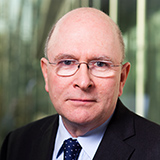 A study commissioned by the General Medical Council (GMC) last year found that the current UK register provides limited information compared with those in other countries.
A study commissioned by the General Medical Council (GMC) last year found that the current UK register provides limited information compared with those in other countries.
This is not surprising. The first UK register, introduced in 1859, was a hardback tome for patients to check whether practitioners in medicine and surgery had the qualifications and competence to treat them.
The register has hardly changed since then, although the information is now online. It is increasingly used by patients, employers, and doctors. Last year, there were nearly 7m searches.
What has changed over time is the nature and context of medical practice, and patient expectations.
The study sought the views of educators, employers, doctors, patients, the public, and some GMC staff. It found that to the uninitiated, the register can be incomprehensible and misleading.
The information it provides is limited—not much more than a doctor’s qualifications. This tells the reader little or nothing about his or her current practice.
Modern medical careers can be complex. A GP, for example, may have developed expertise in minor surgery, and an anaesthetist might focus on patients with sleep disorders. Every licensed doctor is now revalidated on the basis of the work they undertake—but the register fails to reflect this.
It should set out the range of professional work the doctor undertakes and not just the fact that they earned a medical degree 20 years ago.
Some doctors may not want certain information to be included—the proposal therefore is that doctors themselves should control their entry.
The idea is to create a voluntary system and it would be a matter for the individual practitioner to decide what additional information to include. This will give doctors in different situations and preferences a degree of flexibility; we know that some doctors working in sensitive areas may want to provide different kinds of information.
Doctors could add details about their scope of practice, employment history, additional qualifications, languages they speak, and where they practice.
Competing interests
Doctors may wish to declare any competing professional interests, such as funding for academic work, links with the pharmaceutical industry, or ownership of care homes. There is nothing wrong with having competing interests, but they should be declared and managed when appropriate. We would need to consult further on what this might look like.
Whatever information is made available has to be proportionate, relevant, and useful, without straying into advertising. The register could become something of real value to patients, doctors, and employers, signalling that the medical profession is willing to embrace openness.
Arguably much of this information is in the public domain. Many doctors provide staff details and those in private practice provide information for their patients. The advantage of the register is that it would be in one place which anyone could easily access to find out more about their doctor’s professional practise.
These planned changes put control of a significant part of the register in the hands of individual clinicians. The mandatory parts of the register would continue to be validated by the GMC, but some of the additional information would be directly entered by the doctor.
But we also need to recognise doctors have a right to a private life and for their personal data to be protected. A voluntary approach seems the right way forward—for example doctors who do not want to include their place or places of work could choose not to do so.
Next steps
The medical register was created for the benefit of patients, differentiating those who practised medicine on the basis of science and education from those who relied on myths and superstitions. Today’s register is also extensively used by employers, by doctors, and by other health professionals—it is the one place where every doctor is listed and it is the obvious place to provide relevant accessible information.
Together we can make the register much more useful for everyone.
If you would like to take part in the consultation please go to
www.gmc-uk.org/LRMPconsultation
The final report on the outcomes of the consultation is planned for early 2017.
Niall Dickson is chief executive and registrar of the General Medical Council.
Competing interests: None declared.
